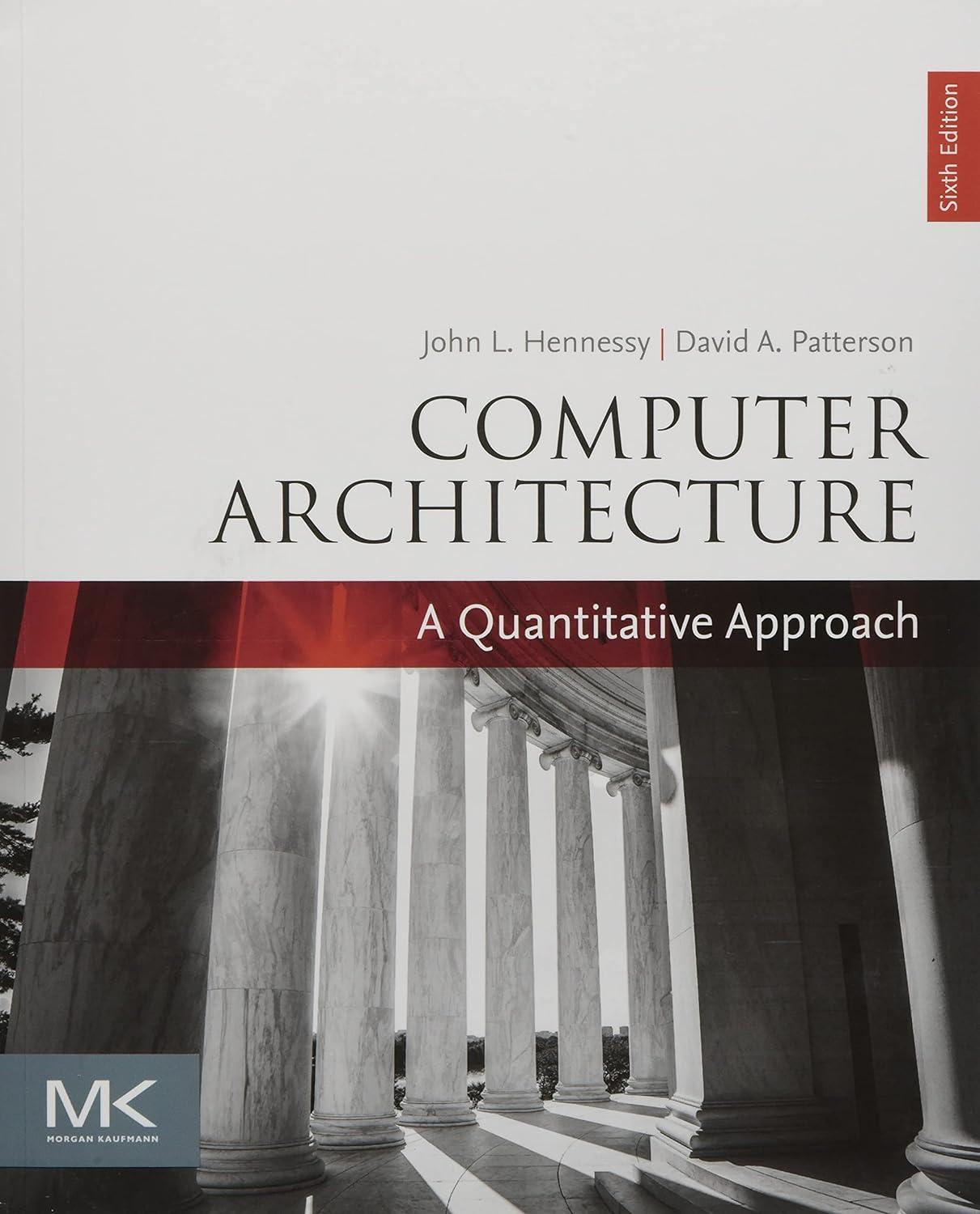You are trying to appreciate how important the principle of locality is in justifying the use of
Question:
You are trying to appreciate how important the principle of locality is in justifying the use of a cache memory, so you experiment with a computer having an L1 data cache and a main memory (you exclusively focus on data accesses). The latencies (in CPU cycles) of the different kinds of accesses are as follows: cache hit, 1 cycle; cache miss, 110 cycles; main memory access with cache disabled, 105 cycles.
a. When you run a program with an overall miss rate of 3%, what will the average memory access time (in CPU cycles) be?
b. Next, you run a program specifically designed to produce completely random data addresses with no locality. Toward that end, you use an array of size 1 GB (all of which fits in the main memory). Accesses to random elements of this array are continuously made (using a uniform random number generator to generate the elements indices). If your data cache size is 64 KB, what will the average memory access time be?
c. If you compare the result obtained in part (b) with the main memory access time when the cache is disabled, what can you conclude about the role of the principle of locality in justifying the use of cache memory?
d. You observed that a cache hit produces a gain of 104 cycles (1 cycle vs. 105), but it produces a loss of 5 cycles in the case of a miss (110 cycles vs. 105). In the general case, we can express these two quantities as G (gain) and L (loss). Using these two quantities (G and L), identify the highest miss rate after which the cache use would be disadvantageous.
Step by Step Answer:

Computer Architecture A Quantitative Approach
ISBN: 9780128119051
6th Edition
Authors: John L. Hennessy, David A. Patterson





